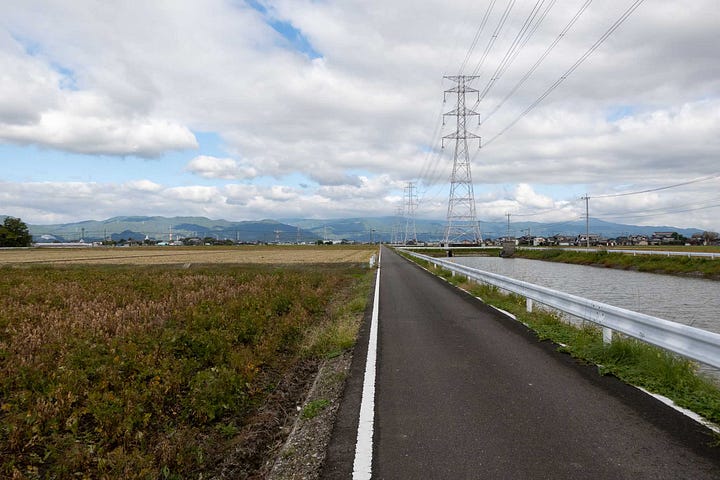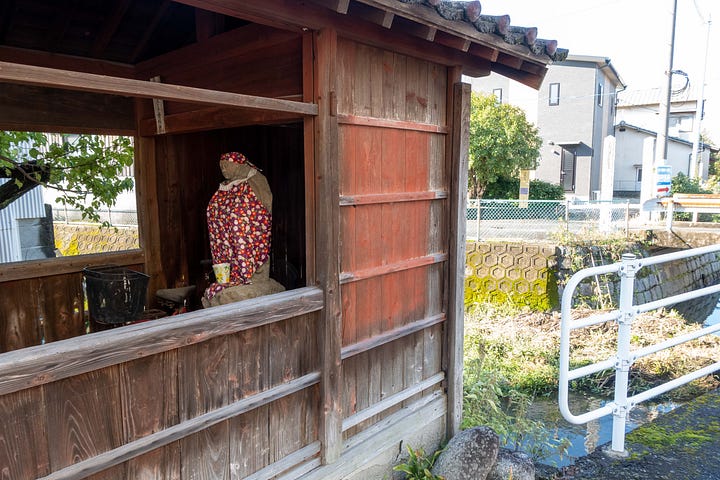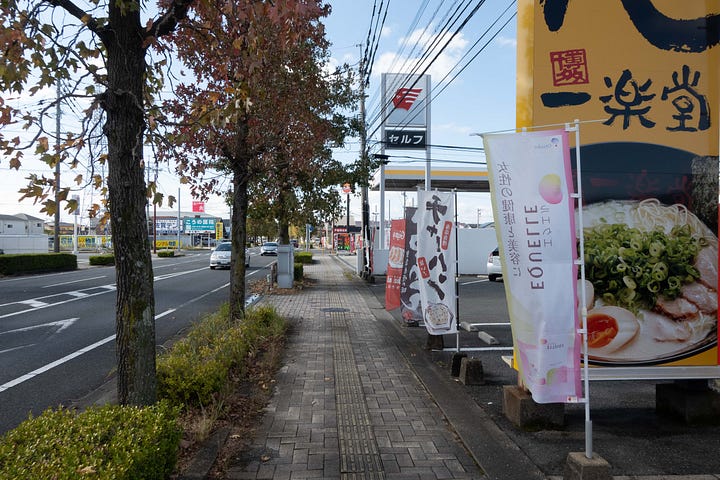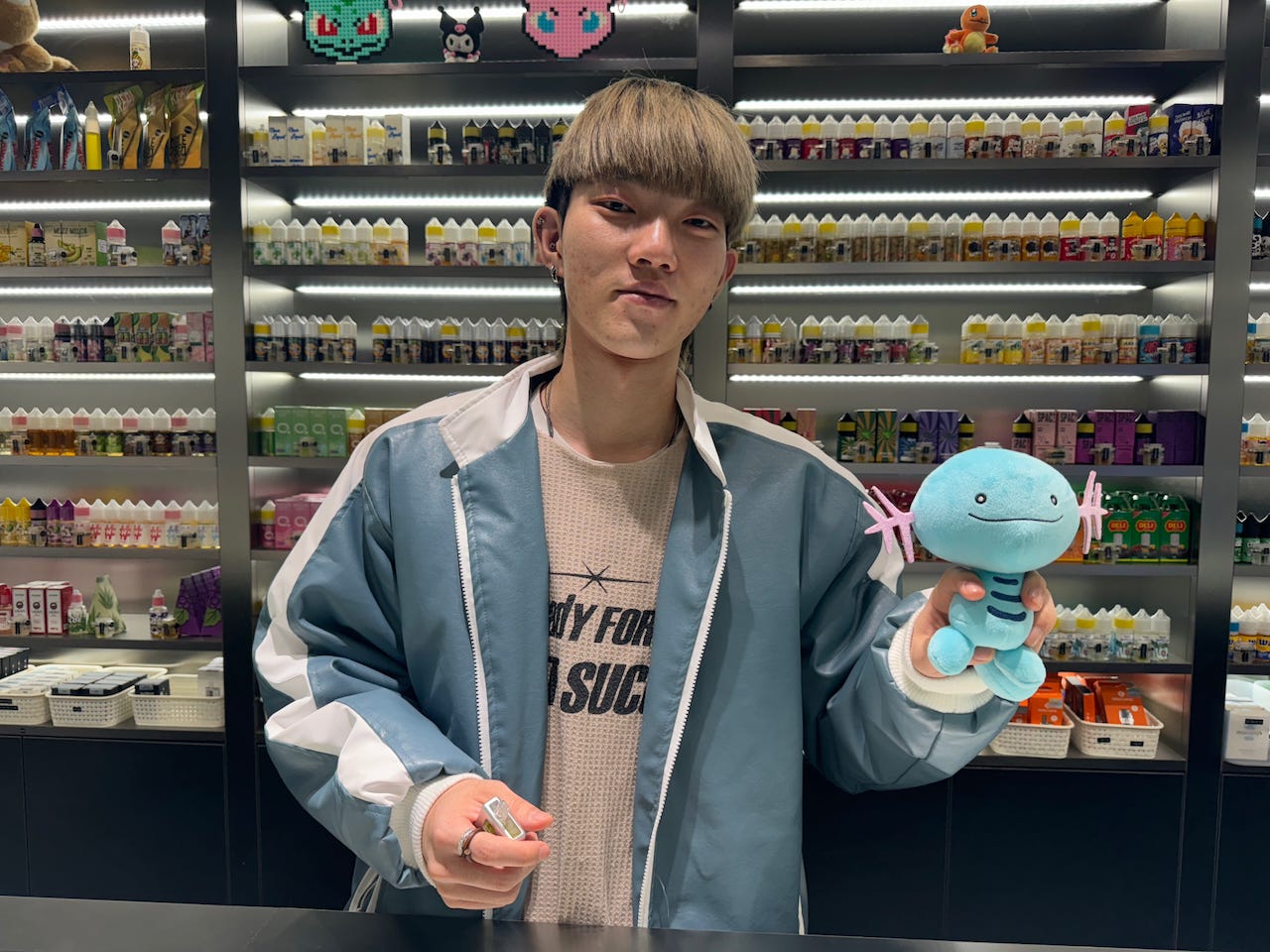Various things from a last week of travel
Burnout and baths in Japan, collecting collectables, and a ferry crossing
(My other pieces from this two month trip: Seoul stopover, Walking Vientiane, Walking Bangkok, Walking Phnom Penh, A hundred hours in Shanghai, Walking Japan: Fukuoka to Nagasaki )
I was about one hundred and twenty miles outside of Fukuoka, somewhere around Saga, or maybe it was Omachi or Kubota, when I realized I was done, and although I had another eight days until my flight back home, this trip was effectively over.
What had been intended as a two-month test run for staying longer in a city I’d admired (Hanoi) and thought I could see myself living in, at least long enough to re-write my novel, became instead a mad dash from Seoul to Vientiane to Bangkok to Phnom Penh to Shanghai to Fukuoka to then heading out for six days of fifteen-mile plus walks across the most populated, but the least scenic, part of Kyushu island carrying a twenty-five pound backpack during an unseasonable warm spell.
I was in the middle of a five-square-mile grid of rice fields that with all the irrigation canals, limited bridges, and power lines felt more like a child’s maze challenge from a paper placemat come to life, when my body gave out, and I barely made it to the train station four miles away.
My legs had gone wobbly on me an hour earlier and I started looking for anyplace to sit in the shade and rest, which I didn’t find because for reasons nobody has been able to explain to me, Japan, despite being very walk-able, doesn’t have public seating except in a few neighborhoods, and if you’re not in one those then your only option is to hike to a train station and sit there, and even then, a bench out of the sun is not a given.
Unlike in Taiwan, or Korea, the convenience stores in Japan are not an option for resting because they have largely eliminated any seating they once had, something I’ve been told accelerated during Covid, so while you can buy a packaged sandwich and a drink, you have to eat those standing up or while you walk because everyone else eats them in their cars, which they at least have the decency to do without the pollution from idling.
I did manage to find the only empty public bench, one of four I’d counted in the town, which as usual was in probably the least relaxing spot in a park that was empty beyond me and two others trying to eat their lunch.




If you travel much, you get used to these moments of being down, of a homesickness that for me manifests as a growing and at times overwhelming irritation at your surroundings. Why can’t the Japanese build better parks? Why is everything around me so boxy, rigid, and sterile?
I’ve learned to do my best to limit their impact by reminding myself I’m the guest, and anyways, no place is perfect, and to do my best to pivot to taking advantage of what a culture does best, and for this time in Japan, that was the public baths.
I’d only “discovered” the public baths a few days before, when I waited too long to book my room for a Saturday night, a big mistake in Japan, and had ended up at a fallen on hard times, but still very popular, at least with the elderly, ryokan. The traditional Japanese inn, usually built around a hot spring or thermal waters, which is what this one was, and the room I’d booked had no shower or bath.




